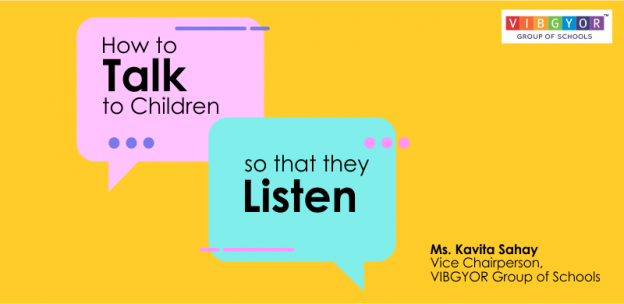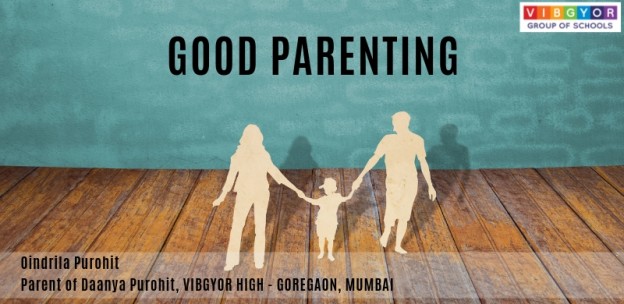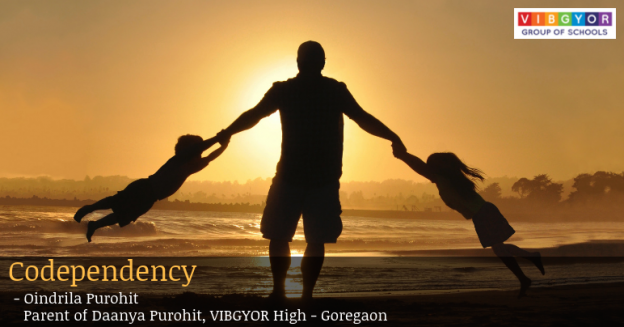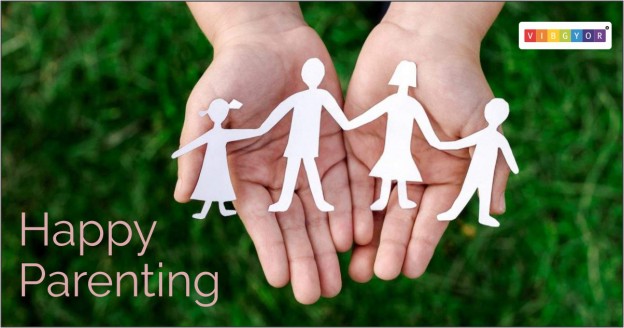![]()
“Monkey See, Monkey Do”
Quite obvious, it’s always the environment and surroundings which grooms the child and “PARENTS” play a very vital role. A child’s birth brings happiness and pleasure but also brings lots of responsibilities as a part of parenting to shape and groom their child to be a better person. Parents influence their child, be it a social–emotional development, health or any of their activities. It is always said that it’s the parents who groom and determine their child’s future.
It has always been a notion that family is the first school for a child. Even a shy and sleepy newborn takes interest in observing things. Majority section of his brain is indulged in understanding the surrounding. A newborn can see, hear and understands but cannot speak but then too he adopts his mother tongue. The child is a very good imitator. As rightly said, “Monkey see, monkey do”. Parents are in charge of their child’s social interaction, and thus the environment that the child is exposed to, with the parent’s permission shapes their future behaviour thus forming a family and then society.
Let us understand few factors which impact the Child’s behaviour:
The Environment: Children do inherit some traits from their parents, but more than that, it is the environment in which the child is raised. If the parents are found having conflicts between them, then the chances are that the kids will treat others with hostility. Once they see the parents fighting and abusing each other then the child will find it common and will begin solving sibling squabbles with the same tactics as they have witnessed. It may also lead to difficulty in handling their relations with their friends or in future with their partners if they’ve grown accustomed to such family discord.
Few suggestions to deal with this:
- Love your child and acknowledge his feelings as well.
- Avoid fighting in front of the kids. If at all situations worsens then the kids can be explained the reason of fighting. Like, “Daddy and I were extra argumentative as we did not have same opinion but yes it was wrong on our part to behave like that.”
- Please assure your child that it was just an argument and not a bigger problem.
- Finish the fight with a smile and the entire family can sit together and show that despite of any disagreements still, the family is the strongest one.
It’s believed that the children’s acquisition of problem-solving, language and social-emotional skills always gets better with more contact and communication with their parents.
Develop Healthy Habits:
Parents play an important role in shaping children’s eating habits. We know that a growing body needs proper nutrition to develop and prevent disease. Sometimes it happens that just because the child is not eating and is crying or being fussy, we offer them the junk food which pleases them. It’s always heard, that “my child doesn’t relish fruits or vegetables or homely preparations but prefers burgers, pizzas, other bakery items”.
But a little more patience at your level will make you realise that if they get hungry, they will eat the food you have served we all understand this, but fail to follow.
As role models, parents need to make sure that they’re demonstrating a healthy attitude toward food and health so their children do too, so one should bring some simple changes:
- Avoid single serves of anything.
- Choose water as a drink.
- Milk is a healthy option against packed juices.
- Prefer fruits over packed food in case of scarcity of time.
- Inspire them to have grains with more fiber, fresh fruits and vegetables and dairy products.
- Involve your child in cooking it will create a magical bonding between two of you.
- Exercise or go for a walk with family
Never forget that “A family that eats together stays together”.
Clutches of Media & Technology:
The other main element where we want to put light on is the clutches of TV, mobile, westernised exposure which has corrupted our lives and our values. We have forgotten our past where grannies used to tell stories and where outdoor activities were highly motivated. At that time we had a joint family and so the responsibilities of the parents were shared. Now, due to the nuclear family system, parents have added responsibility. The time constraints push parents to an alternative method of compensating their valuable time with things that money could buy by way diverting the root cause of the problem, but values in a child can be imparted only by contact and communication. When parents fail to make time to talk and play with their children, they may feel unwanted either getting close to any gadgets or find wrong place and the wrong people. All these things widen the gap between parents and kids which can sometimes risk their lives as well. Engaging your child in TV, mobiles or any other gadgets can never be your substitute.
Parents can manage this ever changing digital dilemma by:
- “Children see, Children do”. First of all, you limit the use of gadgets, read a storybook and then your child will follow the same.
- Keep your child engaged in some sport activity or play with him by this the child will become more creative and communicative.
- Keep a track of your child’s friends and the sites, software and the apps the child is using.
- Always interact with your child, see that you are always present when the child is in front of the screen. Play a video game or watch a movie, share some childhood stories related to it. This will help your child to open up and share his/her experiences as well.
- Show some informative videos like good manners or some moral stories online as we all know that they are good mimics and will follow the same soon.
If a digital device is used thoughtfully and appropriately, media can enhance daily life.
Helicopter Parenting
The term “helicopter parent” was initially used by Dr. Haim Ginott’s 1969 book Parents & Teenagers by teens who said their parents would hover over them sort of a whirlybird.
Parents’ presence can be felt and seen around the child always. Whether it’s related to his homework or any other activity. You will always find a parent not only involved but also influencing the child’s decisions. This is also called a protective type of parenting. Parents are a major concern about the safety but then sometimes it happens that parents are so obsessed with the child that they forget that the parent and child both are a different entities and have a different tasks to do. Parents need to understand that being too much involved in their child’s life can be harmful.
Allow the child to explore, to make mistakes, to try out new things without much guidance. Without this, the child will never understand how to deal with a particular problem or uncertainty. It becomes difficult for a child to face problems both emotionally and mentally. Parents surely has to give warmth, the discipline environment and the environment where they are the role models and they are inspiring and teaching children moving towards that direction but with their actions and in limited instructions.
Let’s understand that all sacrifices which you make will never go unnoticed. As parents, you will sometimes feel that you’re constantly making mistakes, remind yourself then that ITS’ OK, you are doing just fine.




